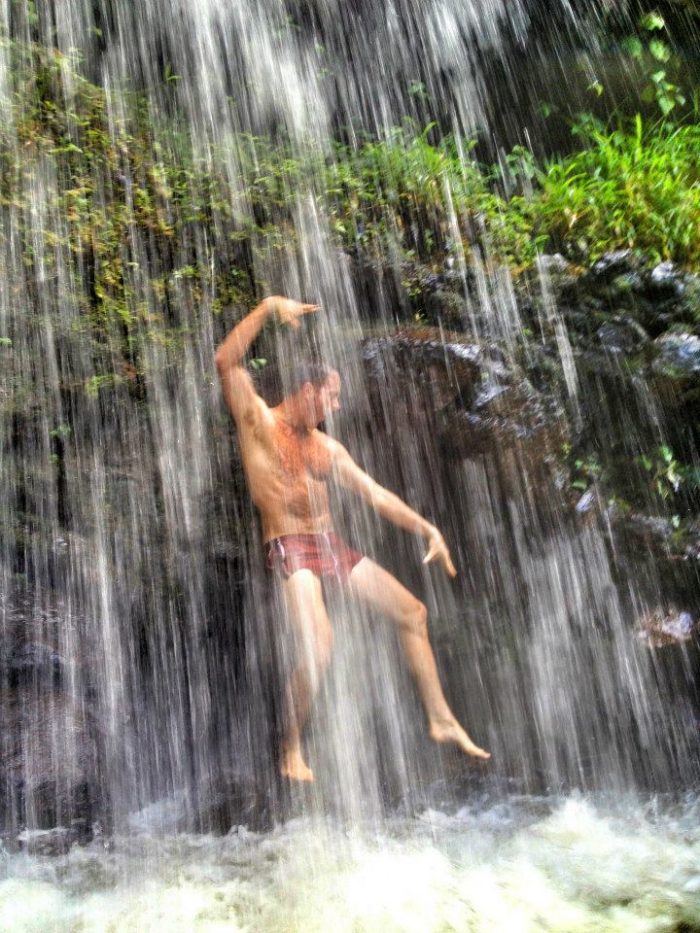With travel, outings, and events being cancelled this summer due to the global pandemic, it can put a dampener on things.
Recent events have also caused a lot of fear, uncertainty, and guilt.
What are we supposed to do? What is our responsibility? How do we keep going after we’ve done everything we can do?
I don’t think we’re supposed to wallow in sadness for long periods of time—in fact, I truly believe we can have joy, even in the darkest times. There’s always hope, love, and light available. That is the aloha state of mind.
So while our summer plans may have been cancelled, and the world may feel like it’s getting darker and darker (whether in your mind or the state of things), we can create paradise where we are! And the beautiful thing about taking responsibility for our actions and life is that it blesses and affects those around us.
Aloha can pour from us to others, making the world (and our summer) a little brighter and better.
The following are Hawaiian values that inspire mindfulness, awareness, and aloha (love), which is what we need more than ever right now. If we pick one or two to focus on this summer, it will make our lives more beautiful in so many ways!
Aloha: live with love.
Aloha flows through all living things. It is a pure energy of love, connecting us all. Sometimes we block the flow of that love with our own false beliefs, fears, trauma, and insecurities. Let this be the summer we navigate the flow of love in our lives—what is stopping us from truly being happy? What is blocking the flow of aloha?
To identify what is blocking the flow, we must first notice our thoughts. Are there things that we know would be good for us, but we don’t do them because of fear or a belief from the past? Is there something that triggers us? We should ask ourselves why.
There are many ways to unblock the flow of aloha, but this is just a start. Another way we can live more in alignment with aloha this summer is to have more compassion—for others and ourselves.
We all are different, and we all have a contribution to make. Instead of judging, have compassion and grace. Try to truly understand what others are saying when they talk, or where they’re coming from. “Pa’a ka waha” (close the mouth) and “lokahi” (unity, oneness) teach us how to strengthen our relationships and listen with love to others. This encourages the constant flow of aloha in our lives.
Mālama: take care of, tend to.
One of the commonly used sayings in Hawaii is to mālama ka ‘aina, meaning to “take care of the land.” The ancient Hawaiians relied on the land for sustenance, food, and life. When we take care of the land, it takes care of us.
In today’s world, with modern technology, daily comforts, and accessibility at our fingertips, it’s easy to forget where all of it comes from. I always encourage people to get outside, as it reminds us of our sense of place. It reminds us of who is in control, and where the life within ourselves and nature comes from: God, or whatever higher power you believe in. Nature inspires and uplifts the soul, truly motivating a more mindful life.
When we go into nature, we can feel the pure energy. And we can even learn lessons from the plants, flowers, and animals we encounter. We don’t have to live in Hawaii to experience the joys of nature—we can find it in our own backyards, a nearby hike, or lake.
Remember: when we take care of the land, it takes care of us. Let us feel the joy in nature, creating memories and impressions that will stay with us throughout our lives.
Mahalo: give thanks, gratitude.
Many people have heard this word and may have said it on a visit to Hawaii. However, mahalo extends much further than a simple word of “thanks.” It is an attitude of gratitude, a deep desire to see the good in all things.
Mahalo actually opens the heart to the good things in life. We have a clearer vision of the things we can control. Doesn’t mean we turn a blind eye to the negativity or things we can’t control, but we empower ourselves.
When we do this, we can experience joy even in the midst of trials. Mahalo teaches us this: control what we can, and let the rest go. Be grateful for those things we can control, which includes our own attitudes and choices.
Mahalo also helps us feel and express genuine happiness for ourselves and others. I watched a video once that said ingratitude is a result of selfishness: We think we deserve more. We think we’re better than others. We think others don’t deserve what they have.
We’ve all probably spent a little more time on social media, comparing our lives to the “perfect” lives we see on there. But what if we refocused our energy?
What if, instead, we asked ourselves: “How can I serve someone else?”—thereby focusing on others, the real people in our lives. Or, “How can I be happy for them?”—thereby focusing our energy on seeing the good in others.
When we focus on service and goodness, our lives become more joyful. Serving helps us be grateful for the things we do have: our knowledge, our life, our people.
One last way to live mahalo is to give thanks to God. Another common saying in Hawaii is mahalo ke Akua, meaning “thanks be to God.” It is a beautiful, inspiring, and genuine expression of the deepest kind of gratitude to a being greater than ourselves. When we acknowledge God, we feel our hearts rejoice, and our lives become lighter.
‘Imi Ola: seek life.
This inspiring value teaches us to seek life, health, and well-being in its highest form. We all experience life-changing moments—in fact, many of us may be experiencing something right now!
The key, however, is to actually do something about it. We shouldn’t let these opportunities pass us by. How will we contribute? What will we learn?
These life-changing experiences can change us for the better, and, sometimes, they can give us clues to our life purpose. I think we spend too much of our lives trying to “discover” or “figure out” our purpose, but what if we created our purpose by just diving into something we’re passionate about or responding to the very events changing our lives now?
Do we want to support a cause?
Or do the project we always wanted to do?
‘Imi ola encourages us to use our creativity, brains, and skills to seek the best and highest life for ourselves, which blesses others along the way.
As we create purpose and do meaningful work (ho’ohana), we will successfully discover our life purpose and path. With purpose comes joy. If we feel a little stuck this summer, try something new to live the value of ‘imi ola and seek life.
Ho’omau: endure well.
When we break down this word, it looks like this:
Ho’o means “to do or be.”
Mau means “steady, constant, ever.”
Therefore, when we ho’omau, we persevere, stay constant, and steady.
It’s definitely harder than it sounds! Being patient, consistent, and enduring well can be difficult for many of us. With the pandemic feeling like it’ll go on forever, we might even want to throw in the towel.
However, ho’omau teaches us that challenges are events in life, not life itself. Even though things are hard, we can look forward with hope, knowing that it won’t be like this forever.
Good things lie ahead, and as we look for the positives, patiently wait, and do our part, we can feel a sense of pride in knowing we did our best.
We re-teach ourselves the golden value of patience, strengthening our willpower and grit.
So what will you do to have a more mindful summer? Remember, we don’t have to live in Hawaii to be happy—we can create paradise right where we are!








Read 2 comments and reply